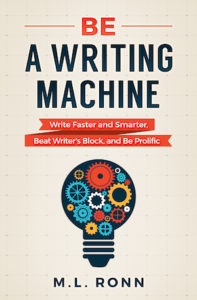Another minimally productive day today but that is how the cookie crumbles this week. Here’s another chapter from Indie Author Confidential Vol. 10. Get it here: https://www.authorlevelup.com/confidentialvol10. Get the series at https://www.authorlevelup.com/confidential
OH!!!!!! BEFORE I SHARE THAT, LET ME SHARE SOMETHING ELSE (yes, have to do all caps):
I’m part of a short story anthology called Monsters, Myths and Miscreants. A Good Necromancer story will be featured in it, and the organizers started a Kickstarter. Not only did it fund in about 24 hours, it’s still going strong. Take a look at it and be sure to back if you’re interested: https://www.kickstarter.com/projects/cabbitcrossing/tales-of-monstrosity-monsters-myths-and-miscreants
Anyhoo, here’s my chapter for tonight.
PROOFING AN AUDIO BOOK WITH AI
I produced audiobook versions of The Author Estate Handbook and The Author Heir Handbook. I hired a professional narrator to do the job.
We followed the typical audiobook production process, which is as follows:
1. I provided a list of proper noun pronunciations for any words that might not be immediately obvious.
2. The narrator provided a sample for me to review and comment on.
3. The narrator then recorded the entire book and sent me all the audio files upon completion.
4. I listened to the audio and provided feedback.
However, I did something different this time that was a follow-up on a chapter that I wrote in a previous volume in the series. The idea was to use a proofreader for the audiobook.
Over the past few years, I have encountered individuals who listen to audiobooks, compare the audio with the text, and provide a summary of any differences, mispronunciations, or formatting errors, such as missing sentences. I thought this was a great idea, and I promised to hire an audio proofreader the next time I produced an audiobook.
Fortunately, they aren't hard to find. I found one on Fiverr. I sent the proofer the audio files with detailed instructions on what I wanted her to look for; one week later, she sent me a report with everything wrong with the audio. This freed me up to simply listen to the audio for major issues without having to do the tedious work of comparing the audio to the text. I sent that report to the narrator, who made corrections, and I performed the final listen-through of the book to make sure that the changes were made correctly.
I am not a big fan of “waving away” my responsibilities. Just because I'm not doing the work doesn't mean that I ignore my proofer's work product. I checked the proofreader's work to make sure she did a good job, and she did.
Another tool that I used in this process to ensure higher quality was Pozotron. Pozotron is also a service that I covered in a previous volume of this series; it is an automated audiobook proofreading software that uses artificial intelligence to catch errors. It scans your audio, compares it to the text, and flags any discrepancies. It works quite well.
For The Author Heir Handbook, I trained the audiobook proofer to use Pozotron. I granted her access to the project, and she went through and reviewed the discrepancies as well as performed a customary listen and proofread of the audio. The result was outstanding. The narrator and I both felt that we had eliminated almost all errors with the first draft of his narration.
Moving forward, when I produce audiobooks, I will let the proofing software and the human proofer do the tedious work, then I will follow up as the last line of quality defense. This process, while adding two extra steps, increases the quality of the audiobook production.

